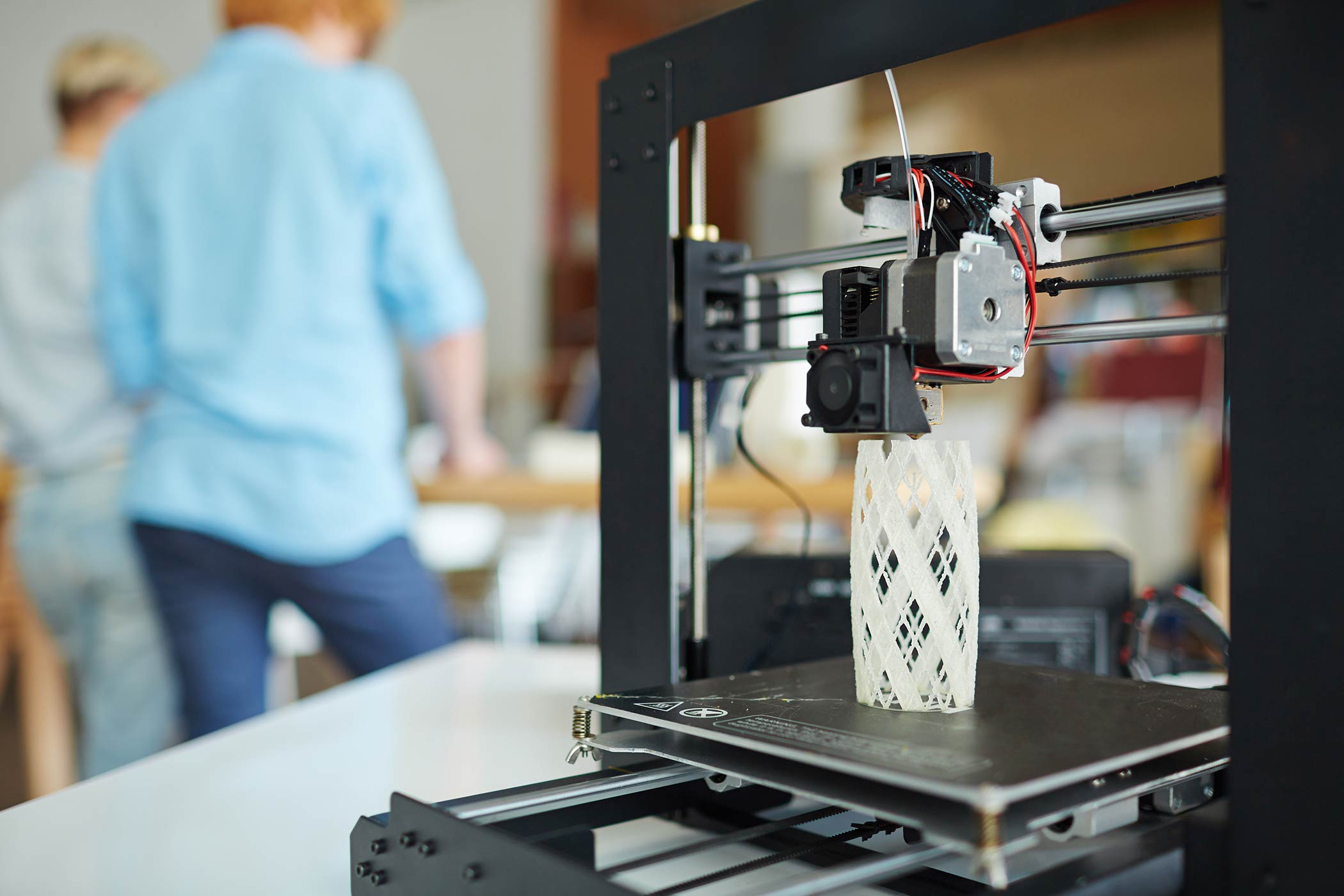{{item.title}}

Technology is evolving at breakneck speed, defining what’s next for business and industry. And while emerging technology should be a key part of every company’s corporate strategy, CEOs are worried about the speed of change, and hesitant in adopting.
To help, we’ve identified and pulled together the ‘Essential Eight’ – the core technologies we believe will matter most in the next three years for business and industry alike.
As we’ve previously explored on Digital Pulse, artificial intelligence can be difficult to define, and is often equated with machine learning, which is actually just an AI subset. Nevertheless, machine learning – where computers ‘teach’ themselves from datasets to perform required tasks – is where we expect much of the usefulness to business in the short term. Algorithms that automate decision-making that is too complex for humans have the potential to take commonplace tasks and do them at the ‘next level’ of sophistication, creating even more meaningful products and services. It will affect all industries, from health, retail, communications and everything in between, and as a plus, it is expected to add US$15 trillion to GDP by 2030.
Not quite the total immersion of virtual reality, augmented reality enhances the everyday ‘live’ world with extra contextual information. Smart glasses are a good example of this, where a visual overlay that lets the wearer see the context of what they are viewing – say where the next bolt needs to be placed on a piece of machinery being manufactured. For industry, there are many applications of AR – including boosting efficiency, enhancing training and keeping workers safe. It’s unsurprising, therefore, that 24% of companies in the PwC 2017 Global Digital IQ Survey plan to spend big on AR tech in the next three years.
While gaining notoriety for enabling the Bitcoin cryptocurrency, the underlying technology – blockchain – is set to change the way industries do business. A tamper-proof distributed digital database, or ledger, blockchain will enable the recording, confirmation and sharing of data between parties with an element of trust that previous technologies fell short on. Blockchain has enormous potential for many industries, including financial services, where it could overcome burdensome manual processes, or in the health industry, where it could provide a secure link between wearables and health service providers.
Anyone who has received a remote-controlled drone under the Christmas tree knows how much fun they can be – but for business, drones of all shapes and sizes are proving indispensable for a range of tasks difficult to tackle in person. Their use in disaster management, insurance adjusting, agriculture and last-mile delivery are just the tip of the iceberg when it comes to how they will be used by business. While investment in drones has not reached the lofty heights of some of the other emergent technology in this list, businesses tell us that they plan to triple their spend in drones by 2020.
As more and more devices are connected to the internet, the web of things that can interact with each other gets stickier. Sensors and software are combining to create, collect and share data, and in the process, transform society and business. From government, banking and HR, to mining, real estate and health, IoT is affecting every industry. In manufacturing, industrial IoT (IIoT) is allowing the entire value chain to be analysed and optimised. The benefits are clear, with nearly three-quarters of the companies surveyed in our 2017 Digital IQ survey making IoT investments. This is a savvy strategy, as it is data from these connected devices that enables a better understanding of causation within organisations, allowing for deeper insights, critical for evolution.
It seems like every week that we are being presented with a new type of robot, from ones that can sweat, to those that can open doors. But the real difference robots will make is in the workplace, where they are transforming operations (manufacturing and otherwise) with capabilities to fit all manner of environments. With 31% of businesses intending to make significant investments in robotics in the next three years, it is set to be a game changer to business models.
The science fiction dream, virtual reality is now living up to its long-running hype with better, and less expensive, technology. For business, it is a near limitless technology for exploring possible futures, products and services. Already, organisations are using VR as an effective way to train for military combat or surgery – situations where hazards and difficulty prohibit iterative ‘live’ training exercises. And in pursuit of increased retention, learning ‘through doing’ is having VR success in exploring skills such as dispute resolution, public speaking or in enhancing corporate communication.
As 3D printing has moved on from printing plastic knick knacks, its true potential is being seen. With the ability to print, metal, glass, wood, food, cells and concrete, it can now be used for a much wider variety of products, from transforming community housing to printing human organs, or affordable on-demand product manufacturing. The automotive, industrial product and healthcare industries are all making substantial investments in 3D printing technology, and others will likely follow with investment expected to grow.
Look out for upcoming article on how these technology building blocks can be combined to create powerful applications, greater than the sum of their parts.
For more information and associated reports on these technologies, visit PwC’s Essential Eight website.
References

© 2017 - 2026 PwC. All rights reserved. PwC refers to the PwC network and/or one or more of its member firms, each of which is a separate legal entity. Please see www.pwc.com/structure for further details. Liability limited by a scheme approved under Professional Standards Legislation.
